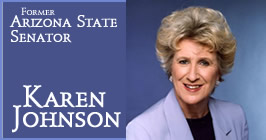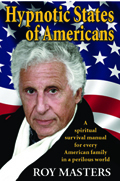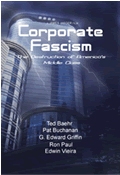By
Former Arizona State Senator Karen Johnson
September 6, 2011
NewsWithViews.com
Groups throughout the country have struggled for years to promote amnesty without success. They even tried relabeling it as "comprehensive immigration reform," but fooled no one. Congress has made several failed attempts to pass amnesty legislation in recent years, including one bill that so outraged the public that they flooded Washington with phone calls, crashed the Congressional switchboard, and scared their elected officials away from any further attempts. Even President Obama, until recently, shied away from taking action on amnesty, knowing the overwhelming objections of the American public.
In 2008, Salt Lake City Chamber of Commerce President Lane Beattie and United Way President Deborah Bayle organized and co-chaired a group of businesses, non-profits, churches, and other organizations into a group called the Immigration Policy Coalition (IPC). In addition to her duties at United Way, Bayle is also a member of the governing board of the Salt Lake Chamber of Commerce. Both Beattie and Bayle advocate amnesty, and both are principle signers of the Utah Compact. [1] Two years after organizing the IPC, amnesty was still only a dream and the IPC was alarmed at the growing movement to enforce immigration laws at the state level. The passage of SB1070 in Arizona sent shock waves throughout the business community in Utah and other states.
Meanwhile many radical Left groups had likewise experienced only frustration and failure in their attempts to pass amnesty, the Dream Act, and other pro-open borders legislation. The passage of SB1070 seemed to herald the death of the amnesty movement.
Then, seemingly out of nowhere, in November, 2010, the Utah Compact surfaced in a smarmy, tightly scripted ceremony at the Utah state capitol, injecting new life into the amnesty movement.
Since its unveiling, the great mystery of the Utah Compact has been, "Who wrote it?" The Compact lists 21 principle signers, [2] but no authors. Clues to its authorship have to be gleaned from hints dropped to the media after the Compact was introduced.
KSL-TV
in Salt Lake City reported that its CEO, Mark Willes, one of the principle
signers, wrote part
of the Compact. [3]
The Washington Post
cited unknown business leaders and the Sutherland
Institute as the authors. [4]
Former Republican
Gov. Olene Walker also gave credit to the Salt Lake Chamber of Commerce.
She said the Chamber "sparked
the question,"[5]
and the Los Angeles
Times reported that the Salt
Lake Chamber and other business and civic groups wrote the Compact.
[6]
The Salt Lake Tribune specifically named Jason Mathis, Executive Vice
President of the Salt
Lake Chamber of Commerce as an author.[7]
Two days after the compact was signed, Bruce Lindsay, moderator of KSL-TV's "Sunday Edition," interviewed Natalie Gochnour, Executive Vice President of Policy and Communication at the Salt Lake Chamber of Commerce. [8]
One of Lindsay's first questions was, "Who wrote the Compact?" While admitting that United Way was one of the drivers, Gochnour tried to squirm out of directly naming the author(s). With a smug, Mona-Lisa smile, she explained that a few months earlier many groups had started talking. This wasn't true, of course. The Chamber had been talking to other organizations about amnesty for years. When Lindsay pressed her to reveal who wrote the Compact, Gochnour continued to dodge the question and replied that it was "an assemblage" of people. He persisted. It was "multiple authors," said Gochnour. Finally, when Lindsay kept hammering at her, Gochnour admitted that she herself had "contributed language," that her Chamber colleague Jason Mathis had contributed language, and that the Sutherland Institute was one of the authors, as well as "others." She claimed that there were "almost 100 authors." Really? 100? That would be a contribution of about 2-1/2 words apiece for the not quite 250-word Compact. Amazing. She also refused to reveal who was paying for the Utah Compact website, saying only that the money came from "a donor."
Based on the sly media hints, it would appear that the Salt Lake Chamber of Commerce (Gochenour and Mathis), the Sutherland Institute, Deseret Media's Mark Willes, and perhaps a few others were the authors of the Utah Compact. But why not say so? Why reveal "signers" but not authors? Most people care more about who writes a particular document than who agrees with it. When the Immigration Policy Coalition formed two years earlier, the Chamber had blared THAT information to the media loudly enough. The coyness didn't make sense. And if, on the other hand, the Chamber wanted to hide its role in the creation of the Utah Compact, it didn't do a very good job. The clumsy secrecy almost made it seem that they were intentionally misleading the public.
Utah is a conservative state, and amnesty is decidedly not a conservative political position. The Chamber had initially built their case for amnesty on their desire for cheap labor and the delicious prospect of the profits that could be made by allowing a flood of immigrants (i.e., prospective buyers) into the country. Conservatives were revolted by those arguments, as they were revolted by the radical Left groups who demanded amnesty as an entitlement. Clearly, the arguments for amnesty needed to be repackaged and made more acceptable to conservatives. And that's what the Utah Compact did. The Compact was a masterpiece in remolding amnesty into something that would appeal to conservatives. The Washington Post acknowledged the switch in an article by Lee Hockstader wherein he stated that the Compact's "genius was to reframe the cause of immigration reform ... as fundamentally a conservative project." [9]
But why not name the authors and give them due credit for the masterful transition? Perhaps the reason was that there was another player, another author, one whose involvement with the Compact would not contribute to the pristine conservative image supporters were trying to cultivate.
Enter Carter Livingston.
Livingston is a Democratic political strategist and consultant who was once married to a Republican consultant, earning them the title of the James Carville and Mary Matalin of Utah. Currently Carter works as a consultant and community organizer for the National Immigration Forum.
The National Immigration Forum is a Washington-D.C.-based advocacy group which promotes amnesty, the Dream Act, and other policy changes that would benefit illegal aliens. The Forum is a grassroots organization which specializes in "knitting together alliances across diverse faith, labor, immigrant, non-immigrant and business constituencies in communities across the country. These alliances come together under the Forum"s leadership to develop, execute and evaluate legislative and administrative advocacy strategies."[10]
The National Immigration Forum is not a conservative group. It receives funding from at least two George Soros foundations (The Open Society Institute and the Four Freedoms Fund), as well as: the Tides Foundation, the Belvue Fund of the Tides Foundation, and other leftward leaning foundations. [11] The Forum's Board of Directors includes representatives from all the usual advocates for open borders and amnesty: the American Nursery & Landscape Association, the United Food and Commercial Workers Union, the U.S. Chamber of Commerce, the Migration Policy Institute, and the Catholic Church. [12]
The Utah Compact was a project of the National Immigration Forum. The Forum claims the Compact as one of its major success stories for 2010, stating that the Forum "[o]rganized members of Utah's community to sign the Utah Compact."[13] Despite all the misleading, planted suggestions about who wrote it, the Utah Compact appears to be a component of a larger plan at the National Immigration Forum to achieve amnesty at the national level.
Carter Livingston, working as a community organizer for the Forum, drew the pro-amnesty Utah groups into a unified coalition and then taught them how to repackage amnesty to make it prettier. The Forum explained in a recent report how it was done. With Livingston coaching them, "the Sutherland Institute privately convened immigration working group discussions ... Sutherland reached out to a broad spectrum of allies such as the Salt Lake Chamber, Republican and Democratic legislative leaders, Republican and Democratic activists and the Salt Lake City United Way. These discussions ... led to a sign-on letter to state and federal leaders calling for ... comprehensive immigration reform." [14]
After meeting with many small discussion groups to allow everyone to feel a sense of ownership, it was time to draft the Compact, with the Church of Jesus Christ of Latter-day Saints (LDS) as their particular target. Amnesty activists in Utah knew that the support of the LDS Church was crucial, since 80 percent of the Utah state legislature were members of the Church: "... the Sutherland Institute quietly convened a small working meeting of communications professionals to strategize .... The group included communications representatives from the chief of Police's office, the mayor's office, United Way, the Downtown Alliance ... and Carter Livingston on behalf of the National Immigration Forum. Together, this group began brainstorming a set of principles around immigration reform unique to the culture and values of Utah. Using the Mayflower Compact as inspiration, the group sought to expound agreed-upon guiding principles whose core urged the federal government to act on immigration reform. The Compact's tenets were customized to Utah and espoused the populace's generally conservative values and those of the Church of Jesus Christ of Latter-day Saints (the LDS Church), to which a majority of Utahns adhere. For example, the LDS Church focuses on the family unit in society .... In the Utah Compact, this strong emphasis on family was reflected in the Compact's opposition to immigration policies that caused family separation." [15]
So, if the report from the National Immigration Forum is to be believed, the above-mentioned "communications professionals" were likely the authors of the Utah Compact and may have been the actual media contacts listed on the Utah Compact website.[16] None of them were principle signers of the Compact and, most especially, no one from the National Immigration Forum was a principle signer of the Utah Compact. That would have sullied the conservative image they had worked so hard to cultivate. The signers were all prominent authority figures who could mostly be positioned in one way or another as conservatives, even if that wasn't actually the case, with a token Democrat or two to make them appear to be a diverse group. The Forum's presence at the Compact's signing ceremony was nearly invisible. Like a good organizer, Carter lurked in the shadows, listed only as a Media Contact on the Compact website.[17]
But Livingston was quite open about sharing how he laid a trap for the LDS Church and Utah conservatives to try to trick them into supporting an otherwise insupportable political cause. A few weeks before the Compact was introduced, an article appeared in the National Journal in which Carter Livingston was interviewed:
| Subscribe to the NewsWithViews Daily News Alerts! |
"In Utah, immigrant advocates, typically liberal Democrats, are trying to find common cause with conservatives, because they know that if they don't they'll be left out of the debate. Carter Livingston, an organizer for the National Immigration Forum in the state, spends much of his time coordinating with the Sutherland Institute and other conservative players. Utah is a religious state (about 60 percent of the population is Mormon), and its policymakers put a high premium on family and community. Livingston emphasizes keeping families together and community involvement when talking about immigration policy .... 'You have to change where the message is coming from,' Livingston contends. 'You have to communicate in a way that legislators will hear, that conservatives will hear.'"[18]
We may never know for sure who actually wrote the Utah Compact. What is clear, however, is that the Compact is not some sparkling new approach to the complex problems of immigration that sprang forth with pristine virtue from the God-fearing Mormons of Utah, as its creators would have everyone believe. The Utah Compact is the cornerstone of a major campaign of the Left, conceived by Washington radicals, implemented with manipulation and deception, and funded by the likes of George Soros, with the goal of ramming amnesty down the throats of the American people, whether we like it or not.
� 2011 Karen Johnson - All Rights Reserved
Footnotes:
1.
The
Utah Compact
2.
Utah
Compact, principle signers.
3.
"Utah
Compact Urges Guidelines for Immigration Discussion," KSL-TV,
November 11, 2010.
4.
"The
'Utah Way' Toward Immigration Reform," Washington Post, March
11, 2011.
5.
"Utah
Compact Makes Compassionate Sense," Salt Lake Tribune, November
12, 2010.
6.
"Utah
Bucks Conservative Trend on Illegal Immigration," L.A. Times,
March 19, 2011.
7.
"Salt
Lake County Council Backs Utah Immigration Compact," Salt Lake
Tribune, December 7, 2010.
8.
"Taking
to the Air in Support of the Utah Compact," KSL-TV, "Sunday
Edition" with Bruce Lindsay, Sunday, November 12, 2010.
9.
"The
'Utah Way' Toward Immigration Reform," Washington Post, March
11, 2011.
10.
Official website of the National Immigration Forum, "About
the Forum."
11.
"2010
Impact Report," National Immigration Forum, Page 2.
12.
Ibid., p. 1. [Link]
13.
Ibid., p. 2. [Link]
14.
"The
Utah Compact: One State's Conservative Approach to Immigration Reform,"
The National Immigration Forum, p. 4.
15.
Ibid.,
pp. 4-5.
16.
Utah
Compact, media representatives.
17.
Ibid
18.
"States
Step Into the Void on Immigration," by Fawn Johnson, National
Journal, Washington, Oct. 15, 2010.
Karen Johnson served in the Arizona legislature for 12 years, from 1997 through 2004 (AZ House of Representatives) and 2005 - 2008 (AZ Senate). Her all-time favorite committee assignment was chairing the Federal Mandates and States' Rights Committee. During her service in the legislature, she supported the Second Amendment, individual, property and of course states rights, as well as the Right to Life, and she still does. Karen and her husband, Jerry, have 11 children and 35 grandchildren. She believes strongly in the doctrine of liberty and does not desire to be tethered to ANY particular party.
Website:
E-Mail: Kstjohnson747@gmail.com












 Share
This Article
Share
This Article




